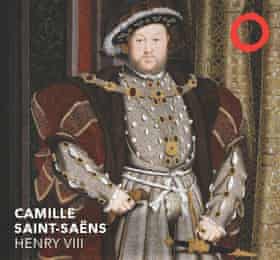Camille Saint-Saëns composed 13 operas, but only one of them, Samson et Dalila, is now part of the regular repertory. However, during the composer’s lifetime at least, Henry VIII, first seen in Paris in 1883, rivalled Samson’s popularity; there were performances across Europe, and even though it has only been staged a handful of times since Saint-Saëns’s death in 1921, it remains the most often performed of his other operas.
The libretto is based on Pedro Calderón de la Barca’s play La Cisma de Inglaterra (The Schism in England), though Saint-Saëns and his librettists also incorporated incidents and characters from Shakespeare’s Henry VIII. The action focuses on the English king’s determination to divorce Catherine of Aragon so he could marry Anne Boleyn, and the split with the Roman church that provoked, though Calderón introduced another dramatic element with the Spanish ambassador Don Gómez de Feria’s love for Anne, and Catherine’s efforts to protect her rival from Henry’s jealousy. In many ways Catherine, who dies at the end of the opera, is more obviously the central character than the king, and she is certainly its most sympathetic figure.
Before the Paris premiere and for subsequent performances, Saint-Saëns’s original score was quite drastically cut and revised. But this recording is based on a concert performance given by Odyssey Opera in Boston, Massachusetts in 2019, using Hugh MacDonald’s restoration of the complete 1883 score, some of which had never been heard before. In this form, Henry VIII is a work of truly epic proportions, with more than 220 minutes of music; it could be described as Wagnerian in ambition, except that, even though he used musical leitmotifs to define the protagonists, the conservative Saint-Saëns’s approach to opera was far removed from that of Wagner, and owed much more to the world of Meyerbeer and the grand-opera tradition of mid-19th-century Paris.
One can imagine some of the music seeming more vivid and engaging with bigger, more lustrous voices than those in the cast assembled by Odyssey Opera. But with the baritone Michael Chioldi as the king, soprano Ellie Dehn as Catherine and mezzo Hilary Ginther as Anne, all the major roles are very capably sung, while the scale and grandeur of the work’s set pieces – the finale to the first act, the ballet of the second and the synod scene of the third – are certainly conveyed under conductor Gil Rose. Seekers of operatic rarities shouldn’t hesitate.

